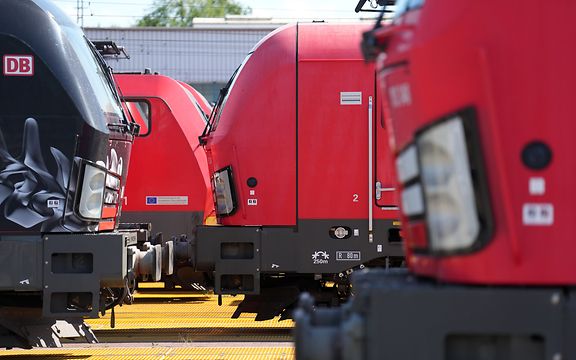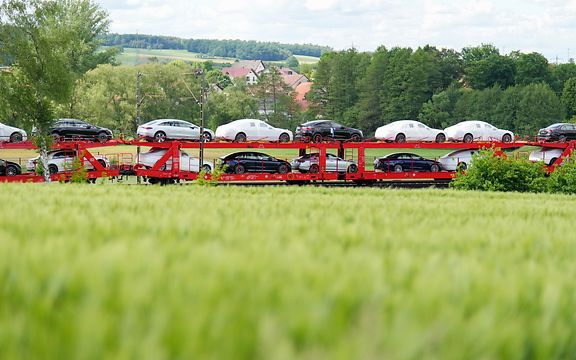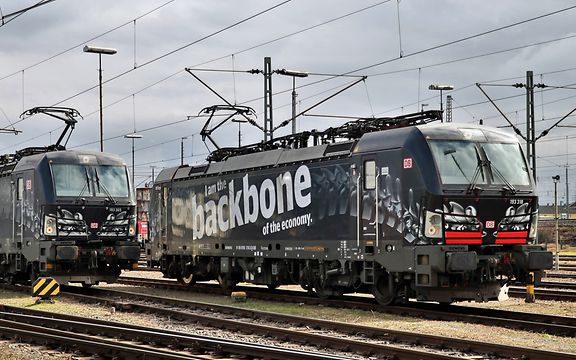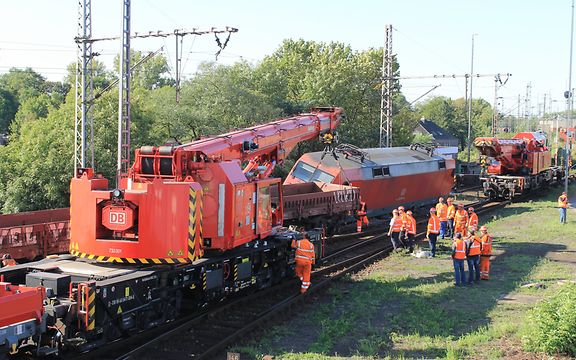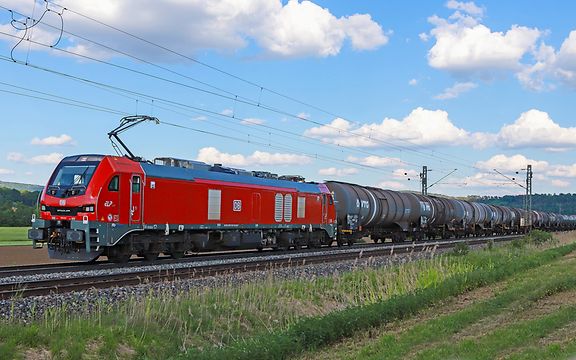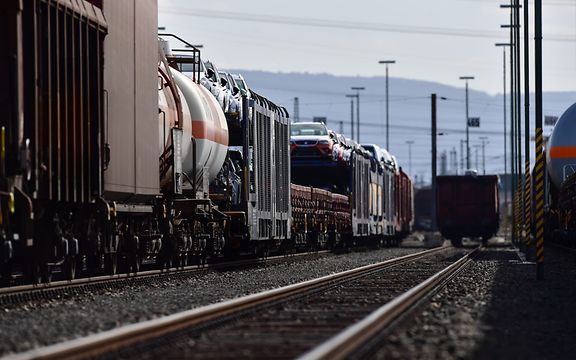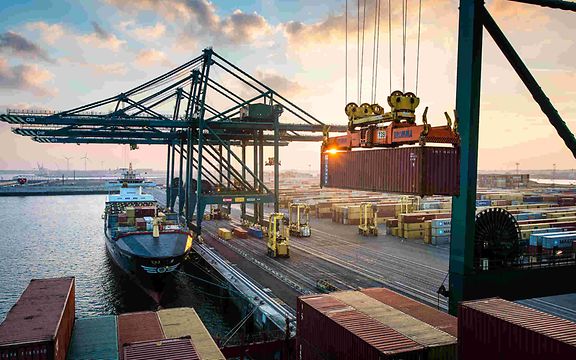What happens to contaminated soil from Frankfurt Airport?
Business partner: DB Cargo and BLUES, otherwise known as Bay. Logistik Umwelt & Entsorgungs Systeme GmbH.
Contaminated soil has been excavated during the course of work at the site, a former US air base. Birgit Gehr, managing director of BLUES, and her team are in charge of ensuring the proper treatment and disposal of soil contaminated with polyfluorinated compounds (PFCs). BLUES GmbH is using trains to transport some 180,000 tonnes of earth from Frankfurt so that it can be disposed of correctly or reused. It's a gargantuan green project. DB Cargo is the ideal partner for this undertaking.
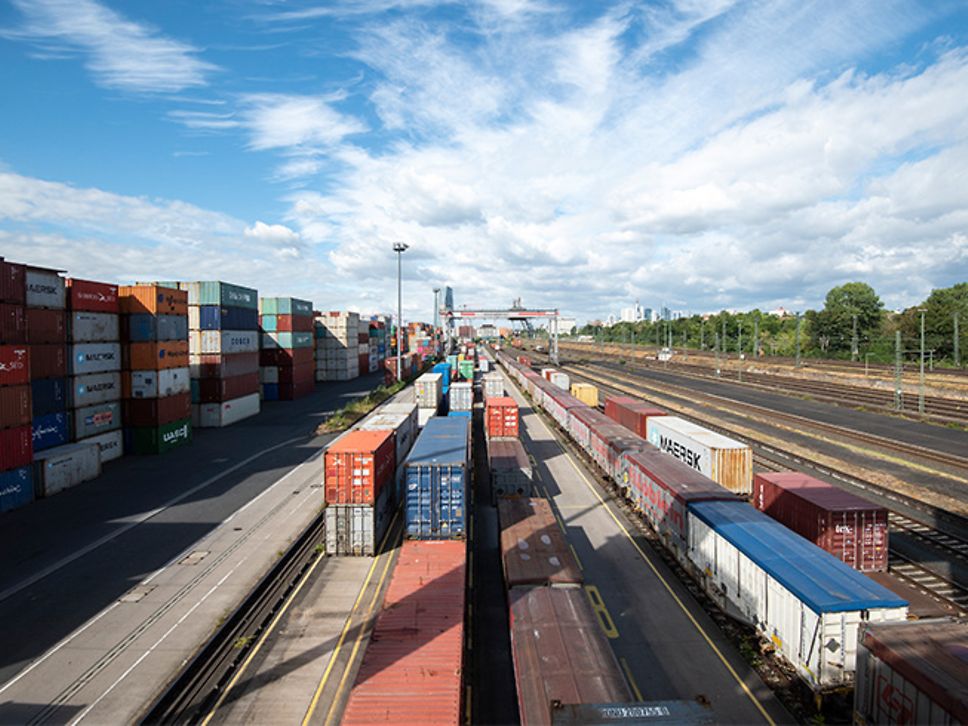
Bay. Logistik Umwelt Entsorgungs Systeme GmbH, or BLUES, hired DB Cargo to remove the 180,000 tonnes of excavated soil, enough to fill around 40 Olympic-size swimming pools. Some 30,000 tonnes have already left the site. Sandra Pfeiffer, key account manager at DB Cargo, explains: "We designed a door-to-door concept featuring two weekly block trains from Frankfurt (Main) Ost to Leipzig-Wahren. We are also planning to use our single wagonload network to move the contaminated soil from Fraport's private siding to a number of treatment plants and landfill sites in Germany." Both connections can carry about 3,500 tonnes of soil every week and will eventually haul a total of some 100,000 tonnes. Negotiations to add more trains to the concept are currently underway.
DB Cargo’s door-to-door logistics
- Eco-friendly transport by rail
- Optimised supply chains tailored to customers' requirements
- Freight transport in any form: packaged, loose, solid, liquid, on pallets or in bulk
- Extensive network with extremely capable business partners
- Cost-cutting potential thanks to outsourcing
- Affordable pricing on long routes
- Round-the-clock logistics without time restrictions on transport
- Single-source management
The contaminated soil is loaded into containers bound for the DUSS terminal at Leipzig-Wahren, which has an annual transhipment capacity of 220,000 TEUs. Copyright: Andreas Reeg
“Our solution is extremely flexible and sustainable”
In two weeks, DB Cargo designed an integrated, attractively priced transport concept unlike any other. Pfeiffer says, "The concept gives BLUES a huge advantage, namely that the company can combine a range of logistics solutions for transporting waste generated during the course of large construction projects or by major customers. Our solution is extremely flexible and sustainable. Plus, DB Cargo delivers management from a single source." Marc van der Las, head of waste logistics at DB Cargo, says, "Not only are we demonstrating our agility with our green door-to-door logistics concept, but we have also won another new customer. We have shifted most of the road transports to the rail network." Combined with the proper disposal of the contaminated soil, this solution represents a two-fold win for the environment.
